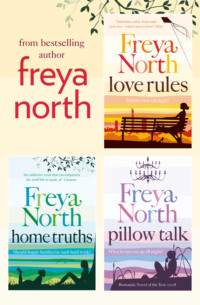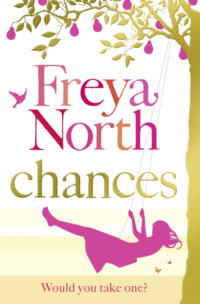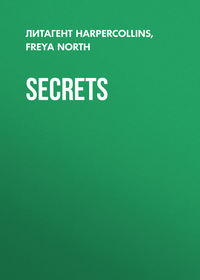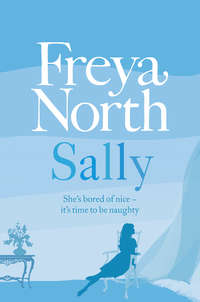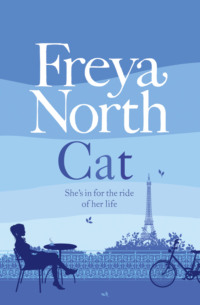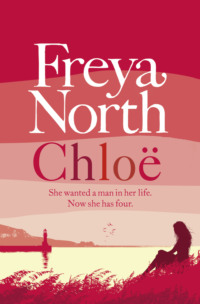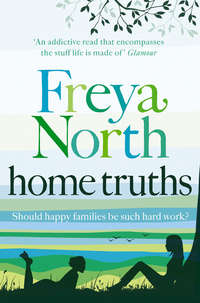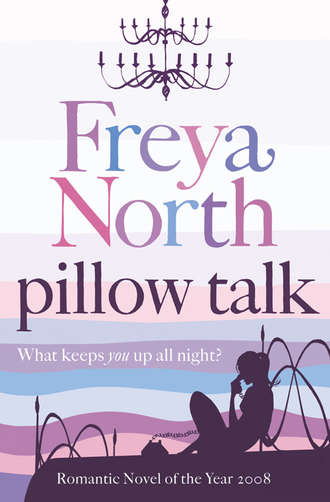
Полная версия
Pillow Talk
‘It’s a six and two threes,’ Petra had justified when she told the others at the studio that Charlton had selected her work.
‘It’s a rip-off,’ said Eric.
‘Your nose is just out of joint because Charlton didn’t select you,’ Gina chided.
‘More like Eric’s dick is out of joint because Charlton turned down his crown jewels,’ Kitty said.
‘I didn’t offer him my body,’ Eric objected, ‘only my work. I don’t fancy him anyway – he’s not my type. He’s too big and swarthy and I don’t like his accent.’
‘You Southern poof,’ Kitty teased him.
‘Charlton Squire sounds like the love child of Jimmy Nail and Molly Sugden,’ Eric said. ‘I only understand every other word.’
‘You snob,’ said Kitty.
‘And he looks like their love child too,’ Eric said.
‘You bitch,’ said Kitty. ‘Meow.’
Charlton Squire did not look like the love child of Jimmy Nail and Molly Sugden, in fact he looked quite unlike anybody. He certainly did not resemble either parent; his mother a whippet-wizened Yorkshire lass, his father a solid Geordie. At nearing six foot five and eighteen stone, Charlton looked more like an oversized cliché, alarmingly like a tribute act for the leather-clad chap from the Village People; a look which hadn’t gone down well in his home town of Stokesley but had gone down a storm when he hit the gay scene in London twenty years ago. He’d ditched the thick moustache in his forties and had more recently relaxed the tightness of the top-to-toe leather and the amount of chest on public view. But he still came across as textbook gay and he used it to his advantage, whatever the sexuality of his clients. He’d charm the straight ones, flirt with the gay ones and inhibit anyone pursuing a discount by wielding his weight alongside a winsome expression of abject hurt if they dared ask.
Though Charlton Squire’s own designs were coveted worldwide, his secondary skill was as a scout. He could swoop down on promising talents and quickly appropriate them as his protégés, as if their genius was of his making and that he alone was responsible for tapping into their potential. Though ruthlessly ambitious, he liked to exude an air of benevolent altruism and eagerly promoted himself as a philanthropic patron and mentor. He still loved designing jewellery but he also loved the showmanship of owning his galleries. He had neither the time nor the inclination to physically make up his own pieces any more and so as well as having bench-workers in the workshop behind the gallery in Hatton Garden, he also sent out his designs to skilled jewellers he trusted. Petra Flint being one of them. She didn’t mind. She didn’t find it demeaning and it didn’t take her away from her own designs; she used her out-work from Charlton as a way of keeping her current account healthy and honing her dexterity as a jeweller – something she believed could always be more and more finely tuned.
What Petra loved most about Hatton Garden was its history and its honesty. It wasn’t as chic or salubrious as the West End but there was a definite sense of it being the genuine hub of her industry. The retailers in Knightsbridge, in Regent Street, lower New Bond Street and South Molton Street were simply trading the wares which could be mostly traced back to the Hatton Garden area anyway. She knew some young jewellers who had studios in Hackney, in Kensal Rise, but though she paid a little more for the privilege of renting studio space in London’s true jewellery quarter, it was money well spent for the buzz and the impetus it gave her. She loved the naffness of some of the shops; the lack of pretension of window displays haphazard on faded flower paper or frayed velvet boxes or cracked plastic cushions; she enjoyed the delusions of grandeur of others – from the geographically schizophrenic Beverley Hills London to the blingtastic Go for Gold with its windows stuffed full of solid gold chains thick enough to hoist anchor. She liked the way that the modern and ultra-chic could coexist quite happily with the old-fashioned and low key. R. Holt, with its frontage resembling a hardware store in need of a dust nevertheless nodded proudly at Nicholas James opposite, all uber-hip and with a minimalist take on window design. Cool Diamonds believed in the lure of its name alone in lieu of any window display while Petra’s personal favourite, A. R. Ullman, was endearingly Dickensian in the higgledy-piggledy jam-packedness of its diminutive shopfront. As she walked to Charlton’s, she browsed; said hullo to familiar faces, detoured via the Wyndham Centre to enquire about reflexology for sleep disorders. Kitty, Gina and Eric had sent her there for her birthday last December, booking her a crystal healing with chakra balancing session. She’d felt well and truly stoned afterwards.
When she was buzzed in at the Charlton Squire Gallery, the eponymous owner, in all his enormous campness, was locked in discussion with a young Hasidic Jew whom Petra recognized as Yitzhak Levy, from a family of renowned diamond dealers. Charlton stood a head and shoulders taller than Yitzhak and compared with the latter’s paleness, Charlton looked positively orange. But whatever Yitzhak lacked in physical stature, his magnificent hat and beautifully tonged sideburn ringlets gave him gravitas. From Charlton’s leather trousers and contour-skimming silken shirt the colour of midnight, to Yitzhak’s eighteenth-century Polish dignitary’s dress, the men epitomized the theatricality, the tolerance, the unique and unchanged trading mores of Hatton Garden. Petra knew what would happen next. There’d be gesticulations, perhaps some banging of fists and the throwing up of arms and then shrugs and nodding and handshakes. The diamond merchant dug into his overcoat pocket and produced the stone which Charlton exchanged for a wad of banknotes. More handshaking. Shalom. Kol tov. Deal done for the day. The men turned and noted Petra. Charlton swaggered over, cupped her face in his hands and kissed her forehead. Yitzhak nodded amiably enough but kept physical space at a premium.
‘He buys my diamonds,’ Yitzhak shrugged, ‘but none of his good money will buy your tanzanite, hey, Miss Flint?’
Petra shook her head vehemently.
‘And if I give you top dollar for it – will you trade with me?’
Petra shook her head again and shrugged. ‘It’s not for sale, Mr Levy.’
‘It’s only for keeping in a cotton hanky under her mattress,’ Charlton said, exasperated, ‘isn’t that right, Pet?’ He often called her Pet, it being a common endearment in the North-East as much as a convenient diminutive of her name.
‘I’ve brought your pendant back,’ Petra said, because her tanzanite was not for sale, not even for discussion.
‘May I?’ Yitzhak asked and Charlton handed the piece to him. ‘Very nice,’ he said. ‘A bit heathen for my liking. You ever thought of designing a nice Star of David range, Mr Squire?’
‘Most my clients are goyim,’ Charlton bantered back, the Yiddish for ‘non-Jew’ coming as easily as a second language.
Yitzhak shrugged. ‘If you make them – they will sell.’
Charlton nodded. ‘You’re probably right. Now bugger off and flog your diamonds elsewhere.’
The men laughed and shook hands again. Yitzhak nodded at Petra and left.
Charlton scrutinized her work in silence. He compared it in minute detail with his design and analysed the craftsmanship under a loupe.
‘Excellent,’ he said at length. ‘Do you want cash or have it as a credit against commission?’
‘Has any of my stuff sold?’ Petra asked him though she could see her work displayed beautifully in a well-lit cabinet.
‘Not this week, Pet.’
‘I’d better have the cash then, if that’s all right with you.’
‘Planning to go crazy at the weekend?’
‘Hardly,’ Petra said. ‘I’m off to see my parents.’
‘Are you taking the boyfriend?’
‘I am,’ she said proudly.
‘He’ll be down on bended knee in front of your pa, Pet.’
‘Don’t be daft,’ Petra said, though privately she thrilled to the notion.
Chapter Seven
‘Hullo?’
‘Dad?’
‘Hullo?’
‘It’s Petra.’
‘Petra. Hullo. How are you?’
‘I’m fine. And you? I was thinking about popping in tomorrow.’
‘Tomorrow?’
‘Yes – is that OK? About elevenish?’
‘Oh. Elevenish isn’t very good as Joanna has ballet. How about after lunch?’
‘After lunch? Or what about lunch-timeish?’
‘After lunch is better. If it’s all the same to you.’
‘Oh. OK. After lunch, then. See you tomorrow. And Dad? I’m bringing Rob.’
‘Rob?’
‘My boyfriend – you met him before Christmas.’
‘Investment chappy?’
‘Yes. It’s going really well.’
‘Well, we’ll see you both tomorrow then.’

Rob couldn’t think of anything he’d like to do less with his Saturday than go on a day-trip to Watford to visit Petra’s father. And he certainly wasn’t going to give over his Sunday to journey out to Kent to visit Petra’s mother. He’d rather visit his own parents in Hampshire, and that was saying something. His week had been long, mostly lucrative but exhausting. He fancied having a weekend left to his own devices. Certainly not to be wasted by being paraded in front of Petra’s parents. Why was she so keen to do that anyway? It wasn’t as if she was particularly close to them. Rob knew he could make it up to her by begging her forgiveness and promising that he’d have theatre tickets awaiting her return on Saturday evening, and the finest sushi in London when she came back on Sunday. Bloody work, he said. Bloody boring, he said. He didn’t say that visiting her parents was hard work and boring.
On the Metropolitan Line to Watford, Petra fought a losing battle against nostalgia. It was always the same and on each occasion, only as she felt her spirits start to sap would she remember how she always asked herself why was she making this trip – uninvited yet feeling duty bound? She knew she’d leave deflated and reflective. She could be snuggled up with her boyfriend instead, if only he was a bit more into snuggling. Or she could be out shopping then. She could be cleaning her flat or curled up with a book. She could be having a nice, easy day.
The journey to Watford was relatively short but it was long enough for her to let the train window, against which she rested her head, judder memories and thoughts from the safe and private place she usually kept them. She always felt positive in advance about visiting one parent or the other, but as the destination neared so did a sense of trepidation and the hunch that on her homeward journey she would question why she made the trip in the first place. Petra envied people whose parents continued to live in the old family home, enabling them to return to the cornerstone of their childhood each time they visited. No matter how far away that home might be, by definition it would be an easy journey to make. But Petra’s childhood home had been sold when she was fourteen and her parents had divorced. She and her mother had moved into a flat nearby and her father had moved away.
Petra gently played her fingertips over her lap as if in silent piano practice; in fact she was totting up the years. It occurred to her that John Flint had lived in his current house in Watford with his new family for the past fifteen years. In the same house. Which meant he’d been there a year longer than all the time he’d spent at home with Petra. Psychologically though, he’d moved out of that house long before his bags were packed and his current house was much more his home than theirs had ever been.
She looked out of the window, glimpsing cars at a standstill. John had offered to buy her a car for her twenty-fifth birthday, but she’d sensed he’d hoped she’d decline because at the same time he’d made much of Joanna’s school fees and there being another baby on the way.
There’d been another since then. Something good had come out of the split between her parents and that was half-siblings for Petra. Joanna and Eliza and Bruce. She peeled back the cellophane on a bland-looking sandwich. It was hard not to feel hurt that she hadn’t been invited for lunch. But Joanna had ballet and no doubt big families were on tight timetables at weekends to cram everything in. Including visits from the daughter, the stepdaughter, the half-sister.
Christ, I’ve just realized Joanna is the same age as I was when Dad left.
‘Petra!’ Eliza flung herself at Petra’s waist while Bruce tried to squeeze in between their bodies.
‘What a welcome,’ Petra told them, noting Joanna slunk around the banister. ‘Hi Joanna, I’m loving your haircut. How was ballet?’
‘Jo,’ said Joanna. ‘I like being called Jo now.’
‘Sorry,’ Petra said. ‘Jo suits you.’
‘I’m giving up ballet – I’m just going to do modern and tap.’
‘Wow,’ said Petra.
The teenager approached and helped her half-sister peel Bruce and Eliza off her limbs.
‘Did you brung us things?’ Bruce asked.
‘Yeah! Presents!’ Eliza shrieked. Petra noted that even Joanna now had an expectant twinkle in her eye.
‘Let the poor woman in, you lot!’ It was Mary. Petra’s father’s wife. From the start, Petra had somehow seemed old enough, self-contained enough and simply didn’t visit often enough for her to appear remotely in need of a stepmother. So Mary and Petra’s relationship bypassed that aspect. To Petra, Mary was her father’s wife. To Mary, Petra was John’s daughter. They both referred to him as John. They liked each other well enough.
They kissed. ‘John is out – he should be back soon. I’m just doing an online supermarket order. Kids – show Petra in.’
‘She’s brung us stuff,’ Bruce said cheerily, poking Petra’s bag as Eliza dragged her through to the sitting room.
Mary paused and Petra could see her assessing the subtlest way to do her familiar disappearing act. ‘Petra, do you mind holding court – then I can just finish off on the computer?’ And Mary wafted off muttering that she couldn’t believe she didn’t have time to go to a real supermarket these days.
An hour later, she reappeared. ‘Where on earth is John?’ she said. ‘I’ll phone him. Back in a sec.’ But soon enough, Petra could see her in the back garden, pruning half-heartedly before sitting down to sip from a mug.
Half an hour later, John arrived back.
‘Daddy!’ clamoured his two youngest children, rushing forward. Joanna glanced up momentarily from her teen magazine.
‘Hi, Dad,’ said Petra, with an awkward half-wave, hanging back. She was always surprised at how grey her father’s hair was; in between visits it automatically restored itself in her mind’s eye to the darker thatch she remembered best. It had definitely thinned more too, even since her last visit before Christmas. Today he also appeared smaller around the shoulders yet more slumpy around the waist.
‘Hullo, Petra,’ he said, craning forward to kiss her cheek while Bruce and Eliza clambered around him like chimps on a trunk. ‘Sorry I’m late – you know how these things drag on.’ But Petra didn’t know, because she didn’t know where he’d been or what the things were that he usually did on a Saturday in early April. ‘You look well, darling. How long can you stay?’
Petra looked at her watch. ‘Oh,’ she said, ‘about another hour, really. Rob’s taking me to the theatre tonight.’
‘Rob?’
‘My boyfriend.’
‘The investment chappy?’
‘Yes. Him.’
‘You must bring him along next time you visit,’ John said.
‘OK,’ said Petra, wondering just now if she’d bother to visit before Christmas and wondering, very quietly, if she’d still be with Rob then anyway.
‘How’s work?’
‘Great, thanks.’
‘And everything else?’
‘Yes, everything’s fine, Dad, thanks.’
‘Where’s Mum?’ John asked and it was instinctively on the tip of Petra’s tongue to say, Still down in Kent actually I’m visiting her tomorrow – before she realized that he was asking the question of his other children.
‘Online,’ Joanna said, with a roll of her eyes.
‘Mummy,’ Eliza called.
‘She’s in the garden,’ Petra told him. And off he went, followed at intervals of a minute or two by his children. Petra brought up the rear.
‘Isn’t it lovely to see Petra, everyone,’ John announced. ‘Shame you have to go so soon. Next time, come for longer.’
‘And bring your boyfriend,’ Jo said.
‘OK,’ said Petra, ‘I will do.’ And it dawned on her that though she could stay until she physically needed to leave to catch a train, her visit had probably run its course already. ‘I suppose I’d better make tracks, now.’
‘Well, it’s lovely to see you,’ Mary said.
‘Don’t be a stranger,’ John added. ‘Come on, I’ll run you to the station.’
‘It’s not necessary,’ Petra told him. And John then said, ‘Well, OK then, if you’re sure,’ at the same time as Petra said, ‘But a lift would be great, thanks,’ and there was a momentary stalemate during which they laughed awkwardly and wondered how to backtrack.
‘Come on, the least I can do is run you to the station,’ John said.
‘Don’t dilly-dally,’ Mary warned him. ‘I’ve been run off my feet all day.’
John spread his palm to signify five minutes.
‘Bye, everyone,’ Petra said and the smaller children hugged her and bemoaned her leaving while Jo said, ‘See you,’ with the nonchalance characteristic of her age.
‘Great to see you,’ John said as he pulled up outside the station. ‘You look very well, darling.’
‘Thanks, Dad,’ said Petra.
‘Are you OK for money?’ he asked, twisting to locate his wallet in his back pocket.
‘I’m fine, Dad,’ said Petra. ‘Thanks.’
‘Well, here,’ he said, passing over a twenty-pound note. ‘It’s not much these days – but you can buy your chappy an ice cream in the interval at the theatre tonight.’
Petra felt almost euphoric as the train pulled away.
He remembered that Rob is taking me to the theatre tonight!
But the feeling soon disintegrated into the familiar sense of deflation. She rested her forehead so that it banged lightly against the window.
I am never an unwelcome guest in my father’s house, but I am always an uninvited one. She felt close to tears and resolved not to arrange another visit until Christmas-time.

Petra’s mother now collected chickens with much the same passion as she’d collected shoes when Petra started at Dame Alexandra Johnson School for Girls. When the letter arrived announcing that Petra had a place and a bursary too, Melinda Flint had taken her daughter into town in a taxi and told her to choose anything within reason at John Lewis. Petra had chosen a thick pad of cartridge paper, bound beautifully, and a Rotring draughtsman pen. Her mother had then spent ages in the shoe department, finally deciding on a pair of slingbacks in vivid scarlet suede. ‘Don’t tell your father,’ Melinda had said, swooping down on a packet of cotton handkerchiefs monogrammed with a delicately embroidered P. Petra wondered how on earth her father could take offence to cotton handkerchiefs with her initial on them. Until she realized that her mother was referring to the shoes.
The only time John passed comment on her mother’s shoes was in the heat of an argument. And there were plenty. Shoes and arguments.
On a bright Sunday morning, Petra alighted from the train at East Malling, waited for a taxi and then asked the driver to stop so she could buy some milk.
‘My mother is into soya milk,’ she explained, ‘and I don’t like it.’
The soya-milk phase had lasted far longer than the redshoe phase which came to an abrupt end when John left. She’d thrown the shoes out. Dumped them in a bin bag along with any items of his he’d left. She’d then eschewed anything as lively as red shoes in favour of elegant dressing so dark and demure it was almost funereal. However, when John and Mary had moved into the house in Watford to prepare for Joanna’s birth two years later, Melinda had reverted to her maiden name of Cotton and, Petra assumed, the dress sense of her premarital days too. She forsook the nicely cut suits in sober colours to go with the flow. And everything was soon free flowing and colourful, from her hair to her long skirts to the yoga poses she did in the corner of the sitting room while Petra tried to watch Blue Peter.
When I finished school, Petra liked to explain, it wasn’t me who left home, but my mother. As soon as Petra’s place at Central St Martins was guaranteed, her mother left London.
Melinda lived first in a yurt near Ludlow for a few months, then she tinkered with communal living in Devon. She tried Portsmouth with a boyfriend called Peter and she stayed a while in Lincoln with a boyfriend called Roger. She settled on chickens and Kent a few years ago and is now more settled than Petra has ever known her to be. So self-sufficient, in fact, that she seldom has the need or the nous to phone her daughter for a chat, let alone to arrange to see her.
Today, it seems, Melinda is not in.
Petra wonders how long to give her mother. She half-heartedly rings the doorbell again and phones the number, hearing the phone ringing inside the cottage. She puts the bag with the milk in the shade and tries to see over the unruly hedge. She can hear clucking, as if the chickens are muttering under their breath that all the doorbell and phone ringing is an imposition on a quiet Sunday morning. She feels irritated. She doesn’t have a number for a local taxi firm and the cottage is not walking distance to any shops that might. She now feels relieved that Rob is not here. How pissed off would he be! He already refers to Melinda as Hippy Chick-en. She stomps around the cottage and peers into an old Renault she is sure cannot be her mother’s. Her mother hates cars. Last time, she reeled off a load of incendiary facts about emissions and the ozone to Rob when they had turned up in his Mercedes before Christmas. The memory enables Petra to feel again relieved that Rob isn’t here with her today.
After half an hour, and on the verge of drinking some milk straight from the carton, Petra can hear voices and over the stile on the other side of the lane, her mother and another woman appear.
‘Yoo-hoo!’ Melinda calls, as if Petra has just arrived and not spotted her.
The other woman waves.
‘We’ve been for a lovely walk,’ her mother tells her, ‘hours and hours. Isn’t it a joy to be in flip-flops in April! Lovely to see you, darling. Come on in. Oh Christ, look at this, Tinks, my daughter has brought her own milk with her!’
Each time Petra visits her mother, she is surprised and a little alarmed by how much stuff can be crammed into such a small space. By contrast, the chickens live in a stylish and spacious way, in designer coops bought at great expense.
‘There must be thirty birds in your back garden,’ Petra remarks, her head bobbing as she vies for a view from the kitchen window not obliterated by wine bottles with candles stuck in them or pelargoniums growing up from the sills meeting the spider plants clambering down from macramé hanging pots at the ceiling.
‘Twenty-six,’ Melinda corrects her, ‘but two bantams are joining us next week. You’ll come and collect them with me, won’t you, Tinks.’
There is silence.
Melinda and Petra look around but though the cottage is crowded with belongings, there is certainly no one else there.
‘She must have gone,’ Melinda says airily. ‘Well, the cacti can have her tea. I insist you try rice milk, Petra. I’ve changed from soya.’
They take their tea out into the back and the chickens squawk their irritation but soon settle down into a sort of muttering indifference.
‘Rob says hi,’ Petra says.
‘Tell him I say hi and Have you sold your horrid car, Rob,’ Melinda says and she starts giggling.
‘Mum,’ Petra objects quietly.


